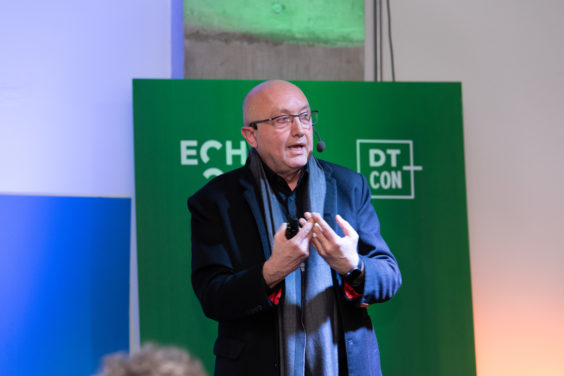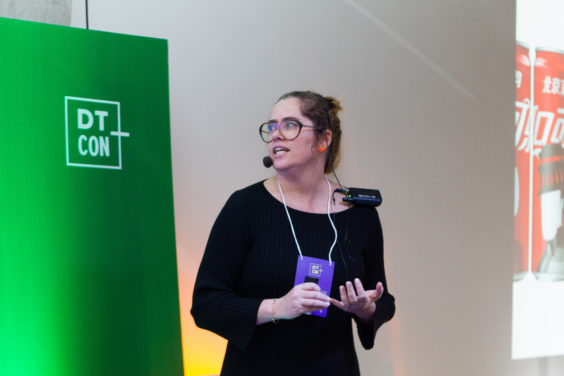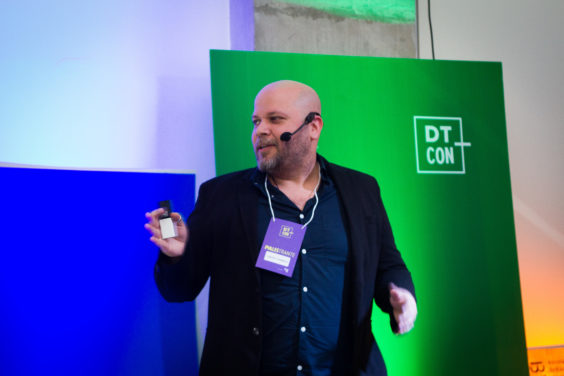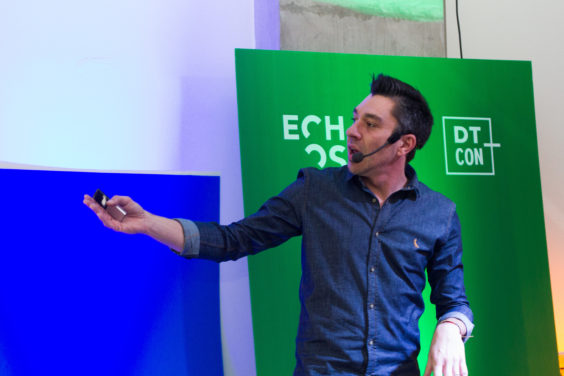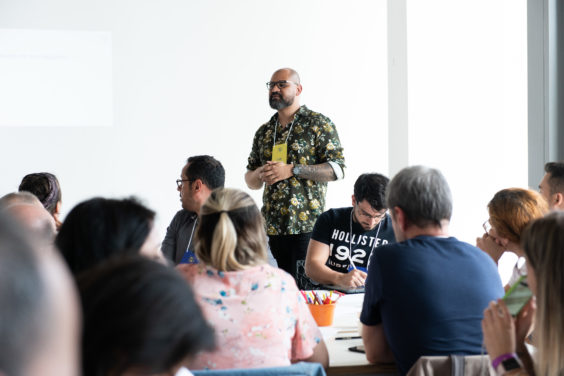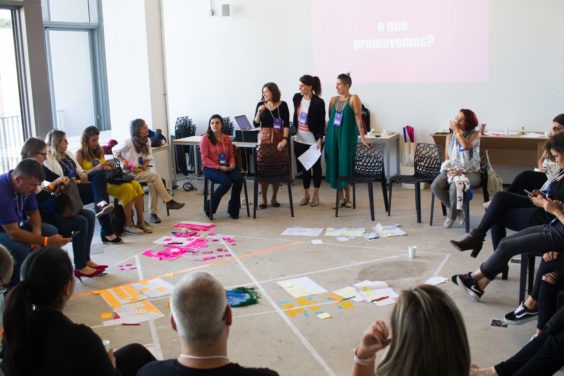Last week, Echos hosted the second edition of our very own Design Thinking Conference (DT-CON) – a two-day event that has become a point of reference in the field of innovation and brings every year to Sao Paulo big names of design and innovation.
DT-CON 2018’s theme was “Building promising futures that will reflect in the way governments, companies, society and individuals are shaped”.
Check out the highlights of day one:
Professor Ulrich Weinberg – HPI D-School, Germany
Professor Ulrich Weinberg, director of HPI D-School – a pioneer in Design Thinking -, was the first speaker to grace the DT-CON stage. Professor Uli, as his students call him, spoke on the relevance Design Thinking has in society and companies.
He spoke about D-School teaching methods, where students don’t follow a set curriculum and, instead, work in multidisciplinary teams, on real-life projects, learning collaboration, empathy and experimentation while practising.
Weinberg also talked about our modern society and how old models of educational and organisational systems and structures no longer make sense in a globalised and technological world. He points Design Thinking as the method that can help these old-fashioned models to give in to multidisciplinary teams that are the best way to solve complex problems.
Juliana Proserpio – Echos, Brazil
Echos co-founder, Juliana Proserpio, presented attendees with a question: Would you rather predict or create the future?
Juliana calls the “design of desirable futures” a movement in which we use Design Thinking yo resolve complex problems and change the future. “It is mandatory that we don’t only react to trends, but become active designers of our future”, she said during the talk.
Proserpio believes that if we act with intention in a world where technology is far more influential to our lives than the government is, we will be able to build a future that doesn’t end up looking like a Black Mirror episode. The pillars in accomplishing this, she says, are diversity, people-centricity, inclusion, intention and collaboration.
Cristiana Grether – The Coca-Cola Company, Brazil
People are often curious about how Design Thinking is applied to the day-to-day of a big company. Christiana Grether, Coca-Cola’s Global Director of Design, explained how she has been applying Design Thinking at Coca-Cola for years. Grether is the brain behind the biggest visual transformation in Coca-Cola’s history and claims that Design Thinking played a huge part in the creation of the brand’s new design formation.
“If you don’t know what problem you are trying to solve, Agile won’t help you.”, she said in explanation to why she uses de Design Thinking methodology instead.
Here are Grether’s premises when using Design Thinking at Coca-Cola:
1- Keep the person at the centre of your decisions – do it when creating a product, do it when putting together a team.
2- Learn to unlearn things. “If we know everything that is to know today, tomorrow we won’t know a thing.”
3- Be adaptable. The world is changing at a fast pace, so we need to be able to adapt in order to create solutions to problems that we are yet to have.
Jakoo Tammela – Fjord, Brasil
Jakoo Tammela, Director of Design at Fjord Brasil, talked about healthcare in his talk “Designing Health’s Future”. During his research on the topic, Tammela detected the biggest problem preventing the health sector to be a more innovative and human field: the system, as it is now, is fragmented rather than connected. Patient data are centralised and not shared between departments. On top of that, the focus seems to be always on the medicine, never on prevention and health as a whole.
How can design help solve this problem? Tammela believes that design can help with figuring out what causes the root problem.
Demetrio Teodorov – Alelo, Brazil
Demetrio Teodorov is a futurist responsible for the innovation department at Alelo – a finance company specialised in providing card benefits in the sectors of culture, hospitality, transport and health.
Teodorov is a Singularity University graduate; he said during his talk: “Professions are going to change, but not in a bad way. Innovation will change the way we work.”
Chico Adelano – Echos, Brazil
Chico Adelano – Head of Design at Echos – and Bráulio Araújo – Design Thinker at Echos – conducted a workshop that explored the obsolescence of business models and the transformation movement that will turn businesses into sustainable institutions that will help with designing desirable futures.
Carla Link, Talking City – Brazil
Carla Link, from Talking City – an “urban innovative ecosystem” – conducted a workshop in which participants learnt tools to rethink the future of their cities in a collaborative manner.
Watch DT-CON 2018’s highlights from Professor Uli‘s (HPI D-School, Germany) point of view:
Stay tuned to read all that happened at DT-CON Day 2 next week.
*Original article by Natália de Almeida Figueiredo. This article was translated, adapted and edited by Rani Ghazzaoui Luke.
—
Follow us on social
Instagram – Facebook – LinkedIn
How Can We Help?
For training and Innovation Journeys in your company: check out our in-house course offering
For upcoming courses in your region: visit our website.
If you have a special project and would like to use Echos’ consultancy services: send us an email.


